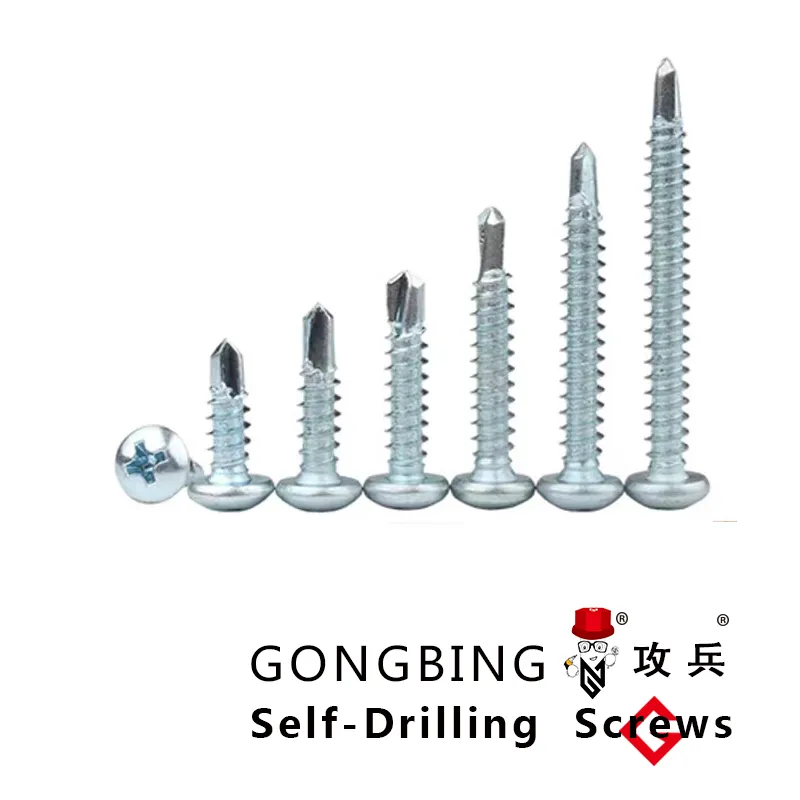countersunk self drilling screws for metal
Understanding Countersunk Self-Drilling Screws for Metal
When it comes to fastening metal components together, the choice of screws is crucial. Among the various types of fasteners available, countersunk self-drilling screws stand out as a versatile and efficient option. This article delves into the characteristics, advantages, applications, and best practices for using countersunk self-drilling screws in metalworking projects.
What are Countersunk Self-Drilling Screws?
Countersunk self-drilling screws are specifically designed to create their own pilot holes, eliminating the need for pre-drilling in most metal applications. The term countersunk refers to the shape of the screw's head, which is designed to sit flush with or slightly below the surface of the material being fastened. This feature not only provides a neat and professional finish but also reduces the risk of snagging and enhances the overall integrity of the assembly.
These screws typically feature a sharp, pointed tip, enabling them to penetrate the material easily and create threads as they are driven in. They are often made from materials like stainless steel, carbon steel, or other alloys, providing strength and resistance against corrosion, which is crucial in metalworking.
Advantages of Countersunk Self-Drilling Screws
1. Ease of Use One of the most significant advantages of using countersunk self-drilling screws is the reduced installation time. Since they do not require pre-drilling, workers can fasten materials quickly, which is especially beneficial in large-scale projects.
2. Flush Finish The countersunk head allows for a smooth surface, which is particularly important in applications where aesthetics matter, such as architectural metal work. A flush finish can also minimize the risk of injury, as there are no protruding screw heads.
3. Strong Hold Self-drilling screws are designed to create tight connections in metal. The threads formed during installation grip the material securely, offering a strong hold that can withstand vibrations and other forces.
4. Versatility These screws can be used in a variety of applications, including HVAC installations, metal roofing, automotive manufacturing, and general fabrication. Their ability to work with different types of metals further emphasizes their versatility.
5. Reduced Risk of Damage Since the screws create their own pilot holes, there is less chance of material splitting or cracking. This feature is particularly beneficial when working with thinner sheets or lightweight metals.
Applications of Countersunk Self-Drilling Screws
countersunk self drilling screws for metal

The applications for countersunk self-drilling screws are numerous
. In the construction and manufacturing industries, they are extensively used to secure- Metal Roofing These screws are ideal for fastening roofing panels to metal framing, as they efficiently seal the joints to prevent water ingress while providing a robust hold.
- Metal Sheet Fabrication In fabricating metal enclosures, cabinets, and other structures, countersunk self-drilling screws fasten components securely while maintaining a clean appearance.
- HVAC Systems For ductwork and other HVAC components, these screws allow for quick assembly and disassembly, facilitating maintenance while ensuring strong joints.
- Automotive Parts In the automotive sector, these screws provide reliable fastening solutions for various metal components, contributing to the overall safety and durability of the vehicle.
Best Practices for Using Countersunk Self-Drilling Screws
To maximize the benefits of countersunk self-drilling screws, consider the following best practices
1. Choose the Right Size Use screws that are appropriate for the thickness and type of metal being fastened. This selection ensures optimal performance and prevents stripping or breakage.
2. Use Compatible Tools Utilize electric drills or screwdrivers that provide consistent torque to prevent overdriving or damaging the screw head.
3. Regular Inspection Periodically check the tightness of screws, especially in high-vibration environments, to maintain the integrity of the assembly.
4. Material Compatibility Ensure that the screw material is compatible with the metal being fastened to prevent galvanic corrosion, which can lead to premature failure.
In conclusion, countersunk self-drilling screws for metal represent an excellent choice for various fastening applications. Their efficiency, aesthetic appeal, and robust holding capacity make them indispensable in the metalworking industry. By understanding their features and adhering to best practices, users can enhance their projects and achieve long-lasting results.
-
Weatherproof Plastic Expansion Anchors for OutdoorNewsJun.06,2025
-
Sustainability in the Supply Chain: Eco-Friendly TEK Screws ProductionNewsJun.06,2025
-
Load-Bearing Capacity of External Insulation FixingsNewsJun.06,2025
-
Double Head Bolts: Enhancing Efficiency in Industrial MachineryNewsJun.06,2025
-
Corrosion Resistance in Chipboard Screws: Coatings for Wholesale DurabilityNewsJun.06,2025
-
Butterfly Toggle Bolts : Enhancing Structural ResilienceNewsJun.06,2025
